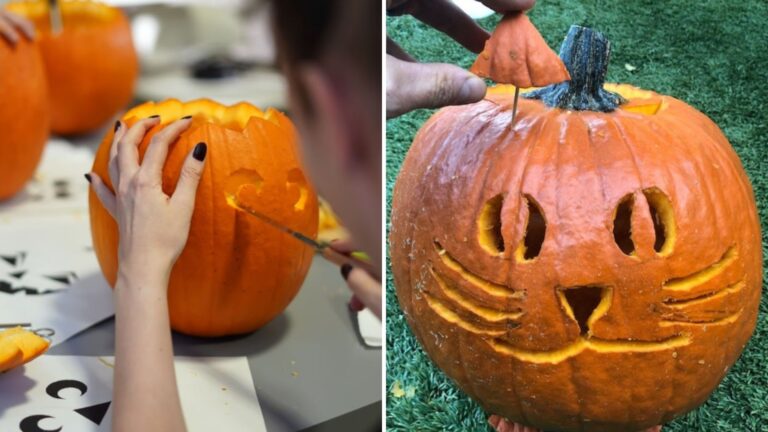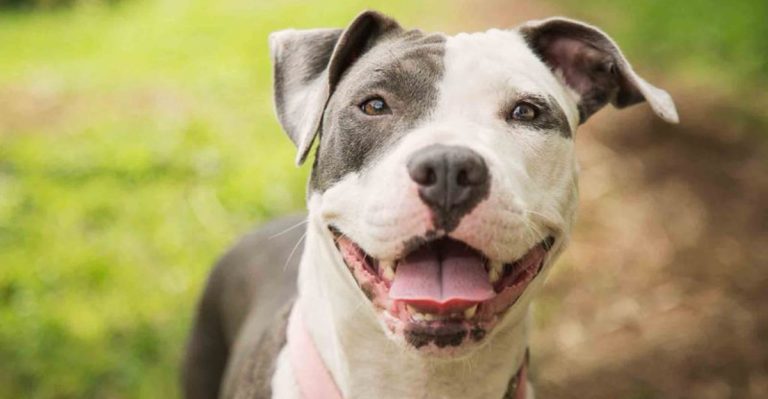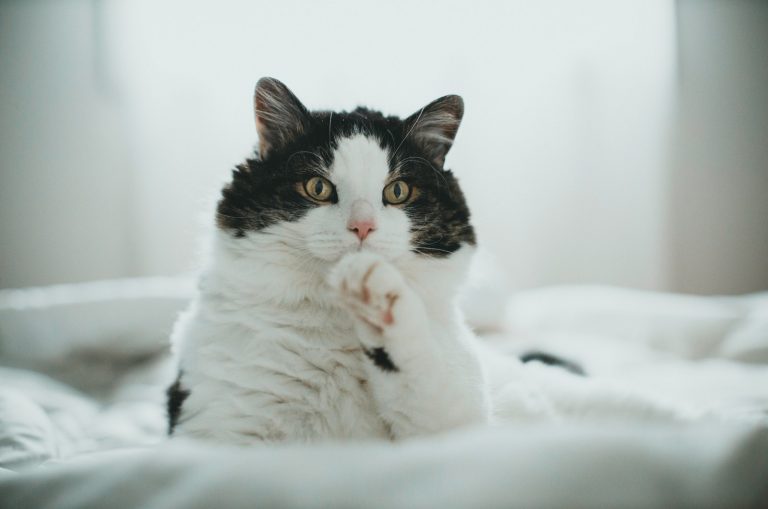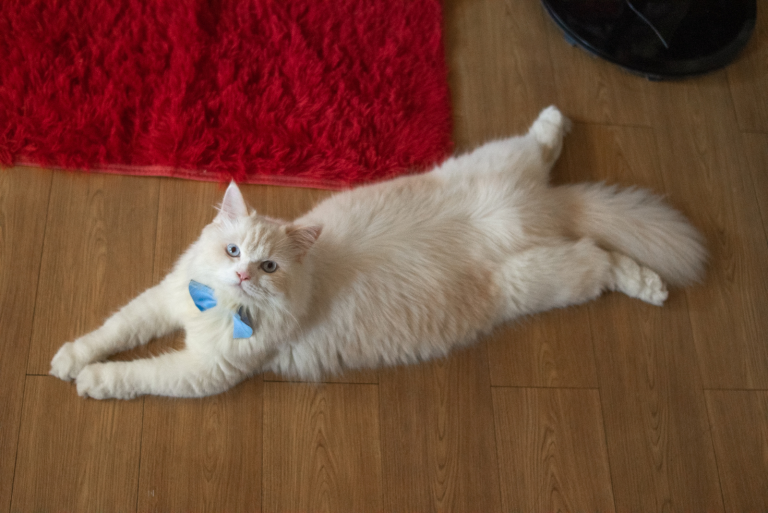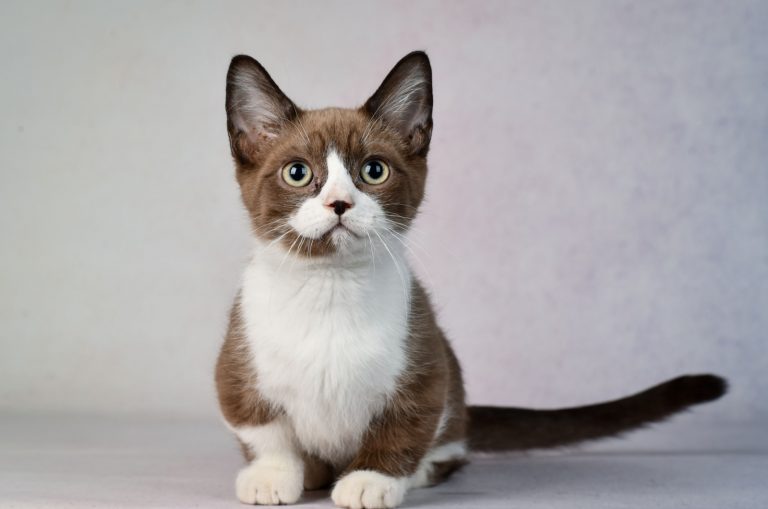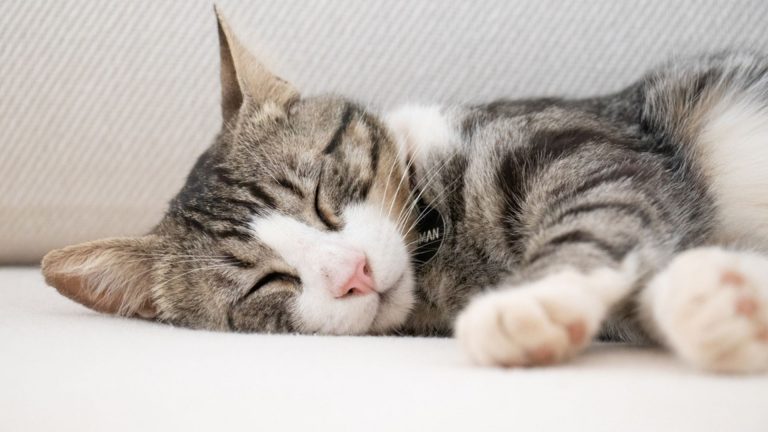Why Are My Cat’s Eyes Dilated? Cause For Concern Or Not?
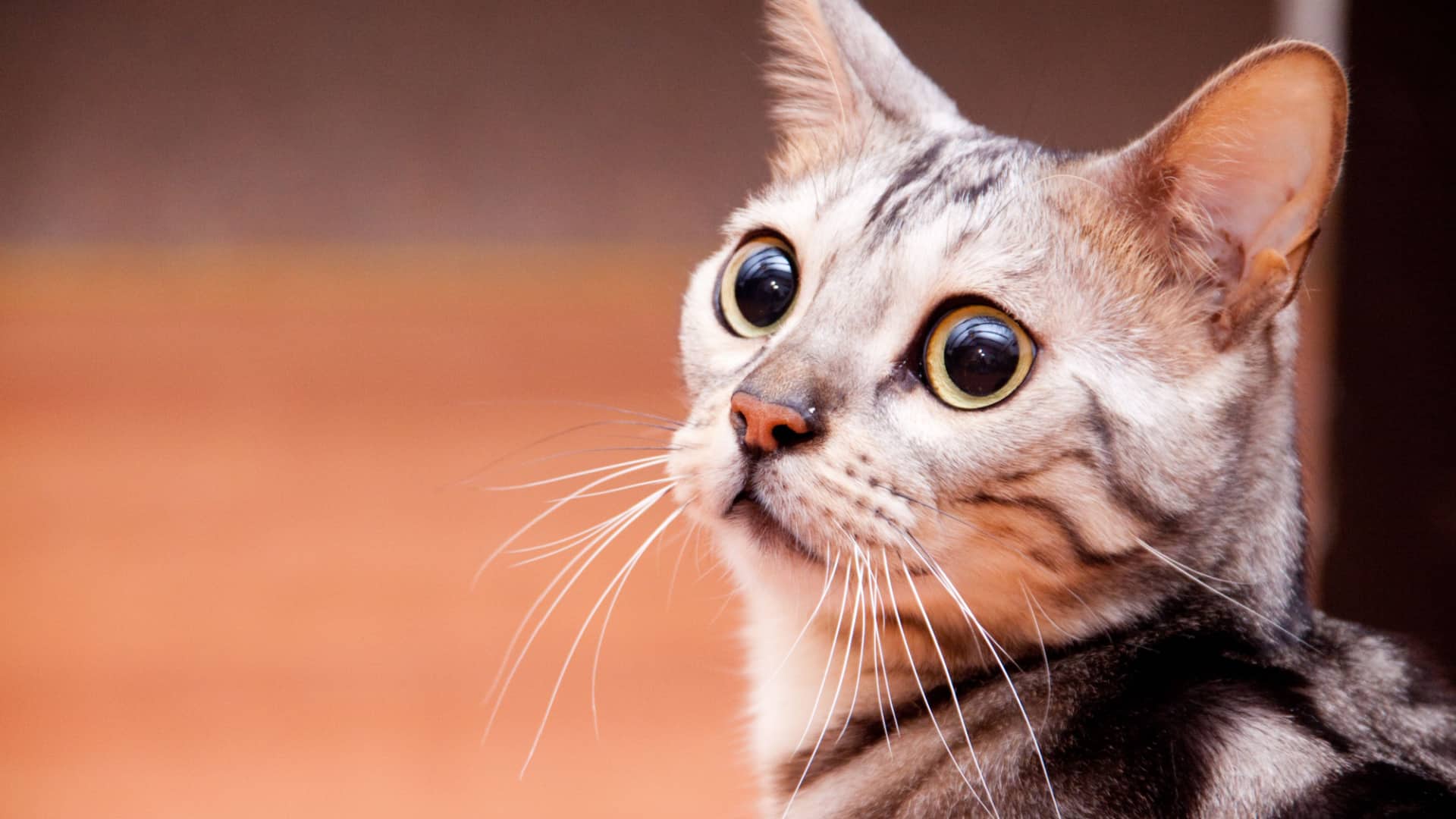
As our feline friends cannot talk, we must read their body language and distinguish between different vocalizations to understand what they need and how they feel.
A cat’s pupils can tell you a lot about what they’re currently feeling, and abnormality in their size can indicate an underlying illness your cat’s battling.
If you’re wondering why are my cat’s eyes dilated? you’ve come to the right place! In this article, I will explain the most common causes of dilated pupils in cats.
Why Are My Cat’s Eyes Dilated?
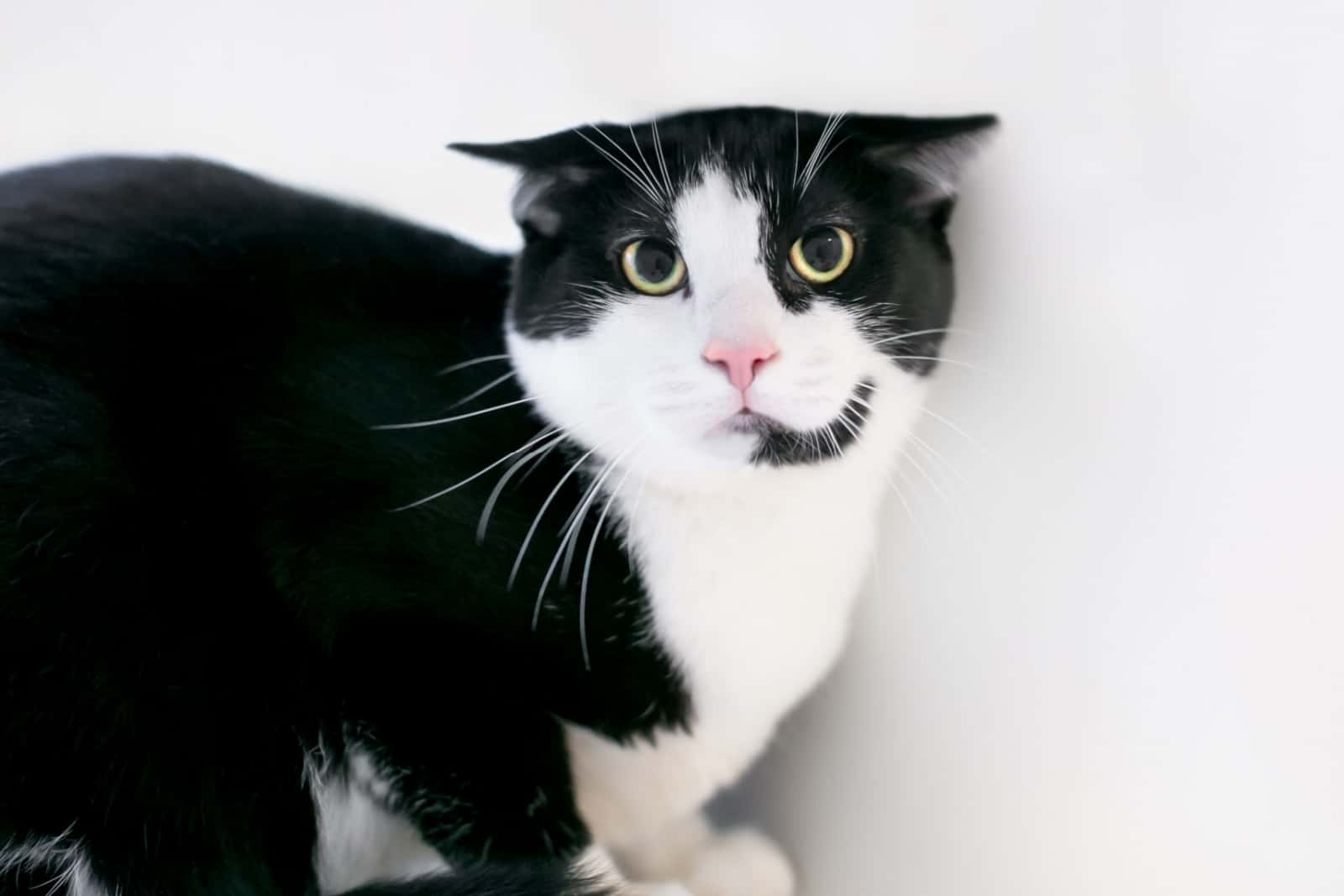
There are a few reasons why your cat’s eyes may dilate.
One possibility is that your cat is experiencing a medical condition affecting its eyes. For example, some cats develop dilated pupils due to infectious disease, inflammation, or eye injury.
Another possibility is that your cat is experiencing an emotional response, such as fear or excitement, which can cause pupils to dilate.
It’s also possible that your cat’s pupils are dilating due to changes in lighting conditions or as a natural response to focusing on something.
7 Most Probable Causes Of Dilated Pupils In Cats
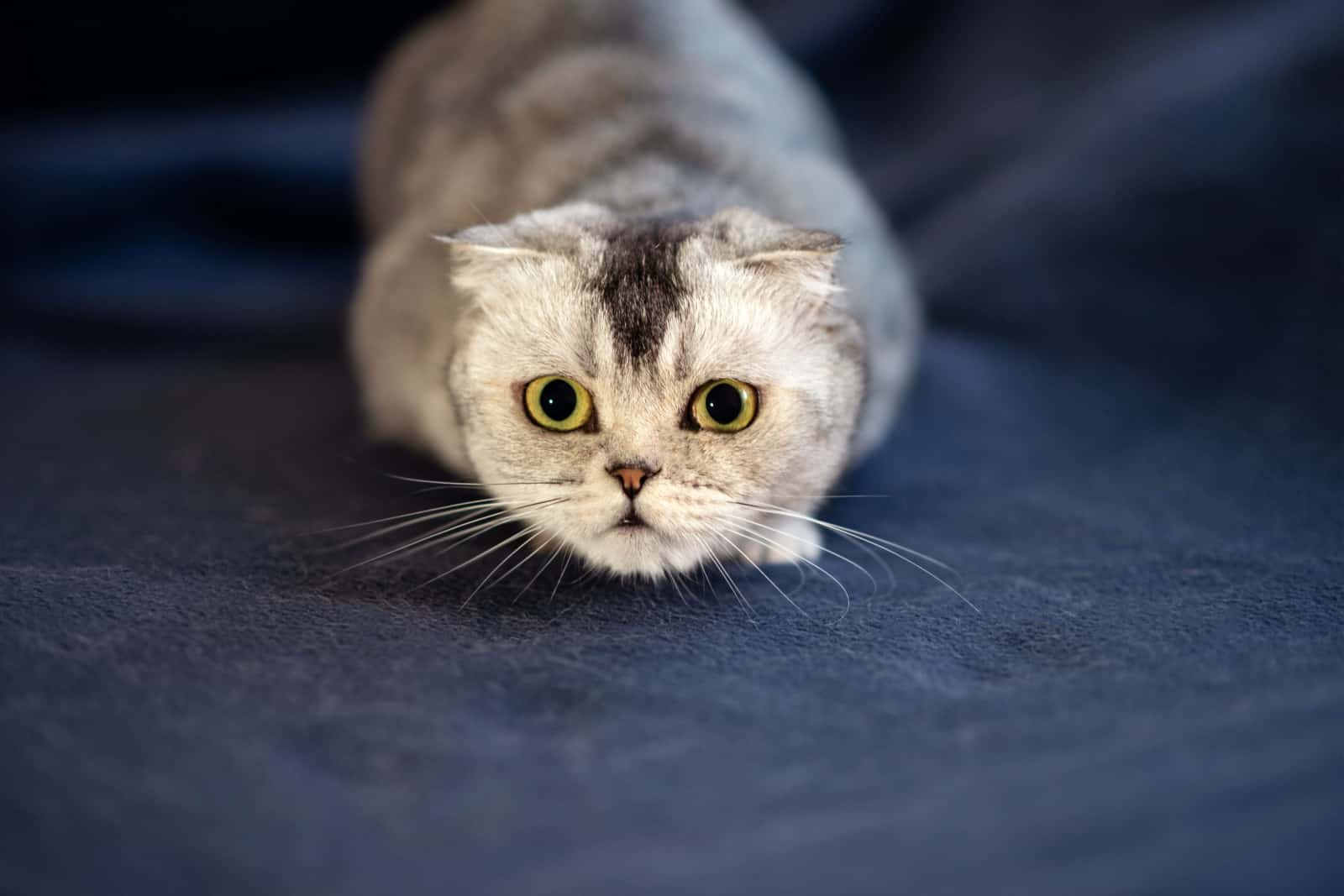
1. Your Cat Is Excited
Dilated pupils are a common sign of excitement in cats. Pupil dilation is a physiological response controlled by the autonomic nervous system.
Some common causes of excitement in cats include playtime with toys or other cats, the presence of a favorite person or food, and the anticipation of going outside or exploring a new environment.
If your cat is excited, you might notice other signs, such as meowing, ears and tail pointing upwards, running around, and jumping all over the house!
2. Your Cat Is In Pain
A cat’s pupils may dilate when the cat is in pain. Other signs that indicate your cat is in pain are crying, change in appetite, change in behavior and body language, etc.
However, some cats can hide their pain very well, so their pupils might be the only indicator the cat is in pain.
Pupil dilation is a typical physiological response to pain. When a cat experiences pain, its body releases certain chemicals, such as adrenaline, that can cause the pupils to dilate.
If you suspect that your cat is in pain, it’s important to have it examined by a veterinarian as soon as possible to determine the cause and provide appropriate treatment.
3. Your Cat Is Scared
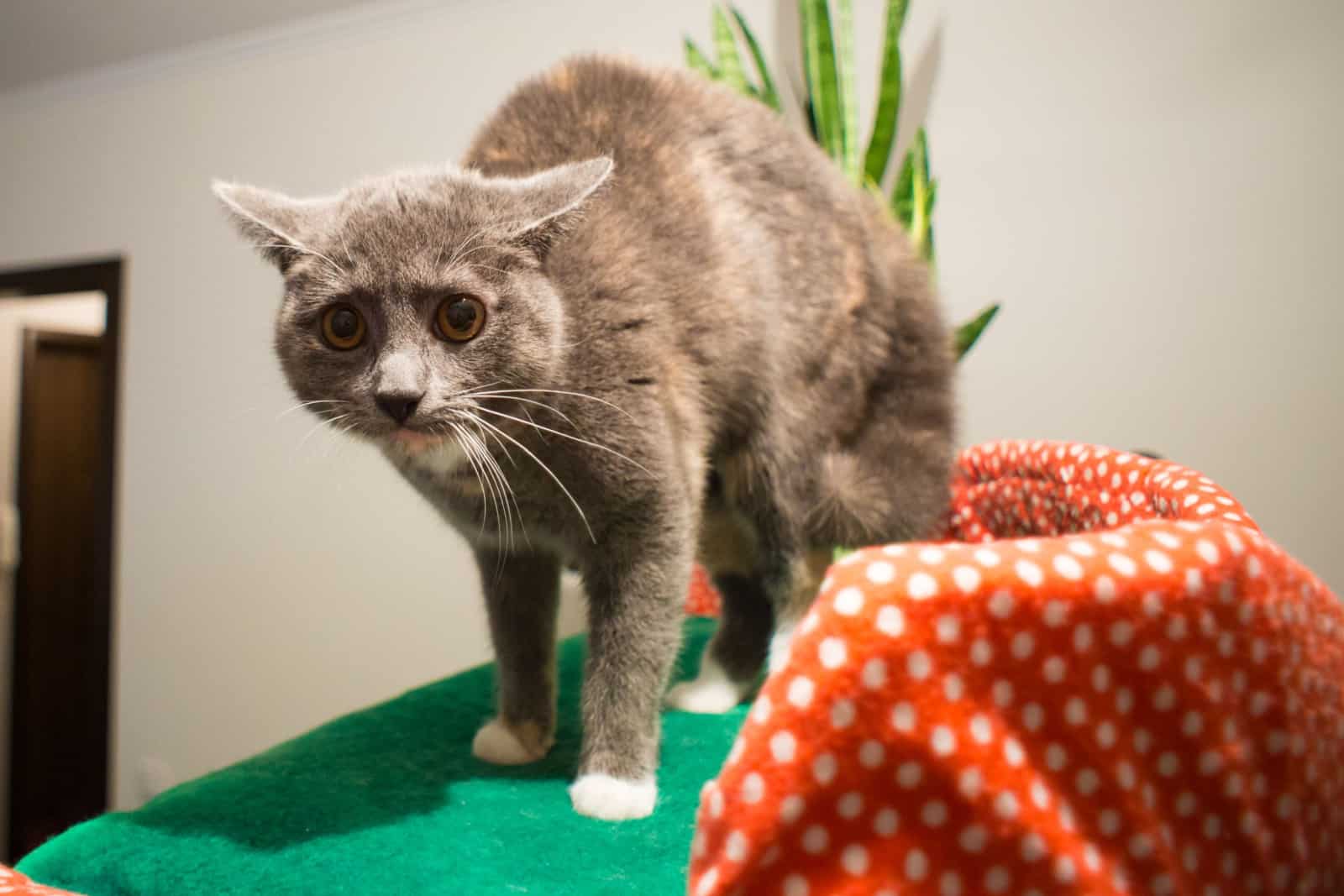
Dilated pupils are a sign of fear in cats, with their tails tucked between their legs, ears pressed flat on the head, shaking, and hiding.
Some common causes of fear in cats include loud noises, unfamiliar people or animals, and new or unfamiliar environments.
Cats may also become scared if subjected to physical or psychological trauma, such as being involved in a fight or mistreatment by an owner.
If your cat shows signs of fear, it’s a good idea to provide a safe and comfortable space where it can retreat and feel secure.
You can also help your cat to overcome its fear by exposing it to the source of its fear in a controlled and gradual way, using positive reinforcement to encourage calm and relaxed behavior.
Suggested: My Cat Is Scared Of Something I Can’t See – What To Do?
4. Your Cat Is In Hunting Mode
If you’ve noticed your cat has been spending a lot of time looking out the window and chattering, you might also be able to see the cat’s pupils are dilated.
If your cat’s in hunting mode (the prey being the birds outside, for example), it will display signs of excitement due to the presence of food (we sometimes forget our feline friends are natural-born hunters).
Besides the presence of small animals such as mice and birds, this behavior can be triggered by toys that mimic the movement of prey.
It’s important to monitor your cat’s behavior and ensure that it is not becoming overly excited or aggressive, as this can lead to unwanted behavior.
Some cats may benefit from toys and activities that can help them satisfy their hunting instincts in a safe and controlled way.
5. Your Cat Is Anxious
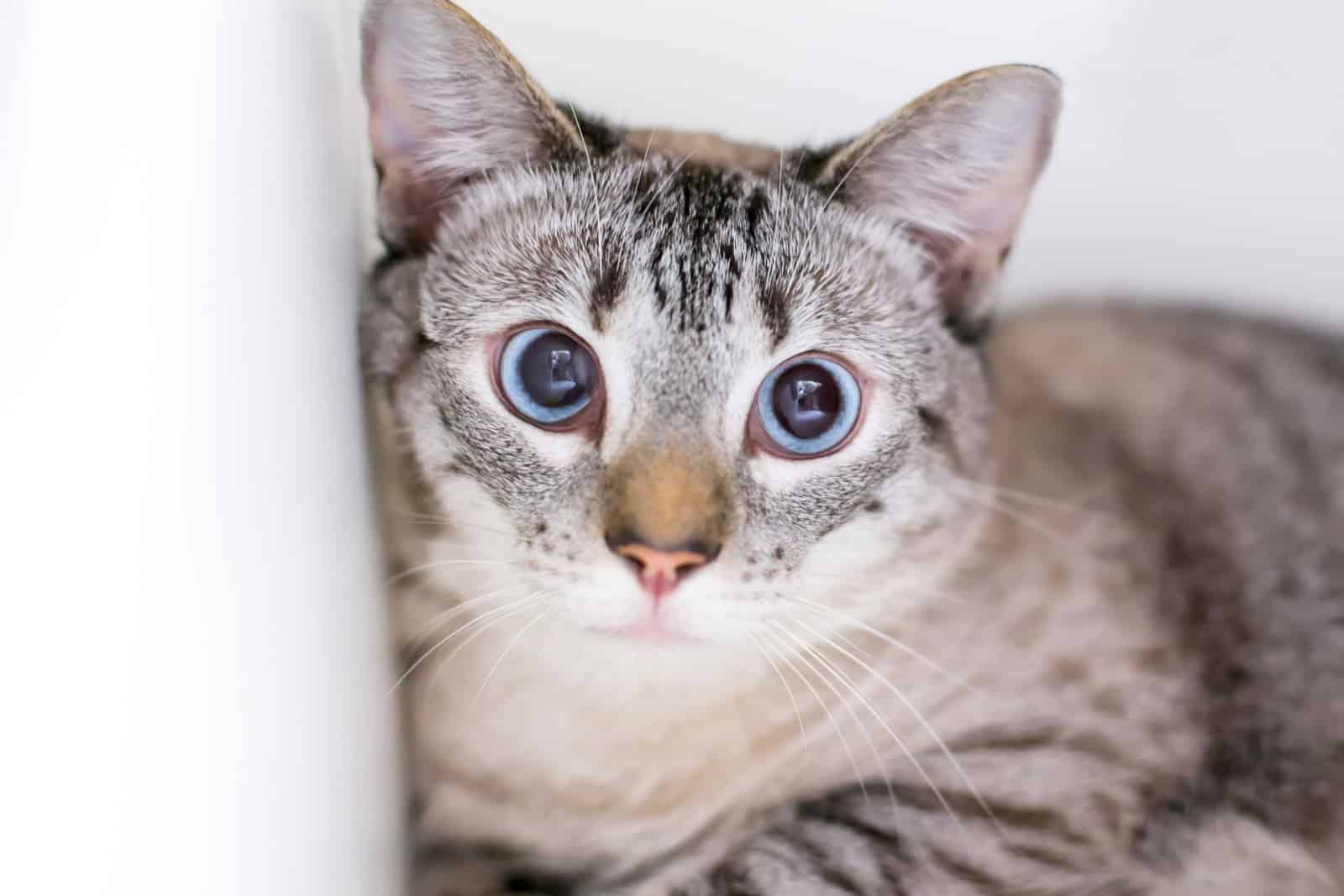
Cat anxiety is a real and common problem that can affect cats of all ages and breeds.
Various factors, such as changes in the environment, separation from a loved one, or the presence of a perceived threat can cause anxiety in cats.
Signs of anxiety in cats can include changes in behavior, such as hiding, clinging, or excessive grooming, as well as panting, shaking, or vomiting.
Suppose your cat is displaying signs of anxiety. In that case, it’s important to have it evaluated by a veterinarian, who can help to determine the cause of the anxiety and recommend the appropriate treatment.
Cat anxiety treatment options may include behavior modification, medications, or a combination.
6. Your Cat Is Trying To See Better
If you observe your cat’s eyes dilated in a dim-light room, do not be concerned; that’s normal.
In low-light conditions, the pupils dilate or enlarge to allow more light to enter the eye. This helps to improve vision and allows the cat to see more clearly in dim environments.
The pupil is surrounded by a muscle called the iris. When the iris muscles relax, the pupil dilates or gets larger.
In low light conditions, the iris muscles relax, allowing the pupil to dilate and admit the maximum amount of light possible.
7. Your Cat Is Suffering From A More Serious Underlying Health Issue
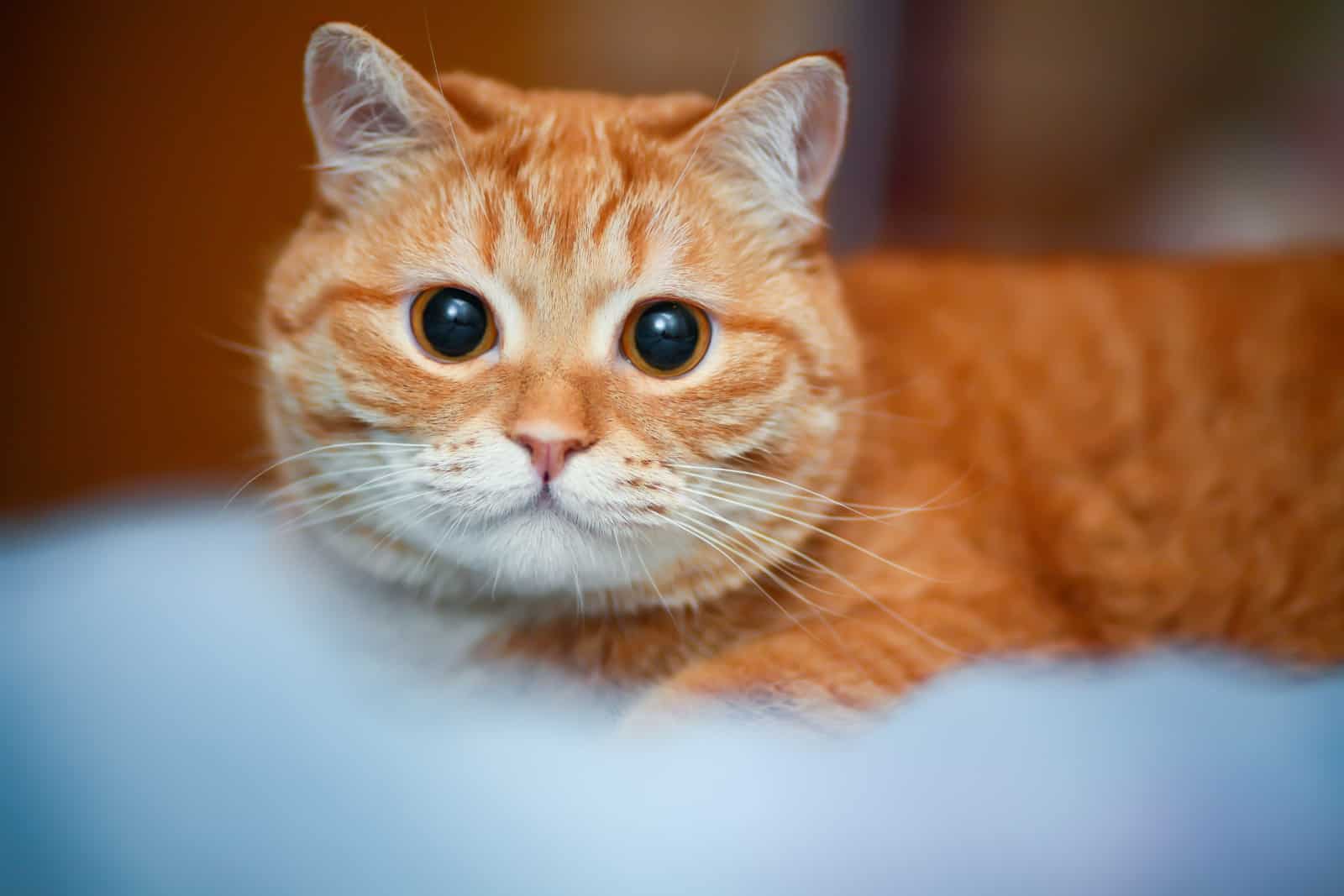
Changes in pupil size can also be attributed to various health problems, and I’ll briefly discuss the most probable underlying conditions below.
Glaucoma
Feline glaucoma is a condition that affects the eyes of cats. It is characterized by increased intraocular pressure, which can damage the optic nerve and result in vision loss.
Glaucoma can be caused by various factors, including a blockage of the fluid that drains from the eye or an increase in the production of this fluid.
The symptoms of feline glaucoma may include swelling of the eyes, discomfort when looking at bright lights, dilated pupils, excessive tearing or discharge from the eyes, etc.
Anisocoria
Feline anisocoria is a condition in which the pupils of a cat’s eyes are different sizes.
In most cases, the pupils of a cat’s eyes are the same size, but in some cases, one pupil may be larger or smaller than the other. Several factors, including infections, injuries, or underlying health conditions can cause this.
It is important to have a veterinarian evaluate a cat with anisocoria to determine the underlying cause and the best course of treatment.
Brain Tumor
Some common symptoms of a brain tumor in cats may include seizures, changes in behavior or personality, loss of coordination or balance, weight loss, lethargy, and changes in the cat’s vision or eye appearance.
If you notice any of these symptoms in your cat, you must consult a veterinarian as soon as possible. A brain tumor can be a serious condition, and early diagnosis and treatment can improve your cat’s chances of a good outcome.
Brain Injury
Although it’s not one of the most common reasons for pupil dilation, your cat’s pupil dilation may be due to a sustained brain injury.
Symptoms of a brain injury in cats can vary depending on the type and severity of the injury. Still, they may include changes in behavior, difficulty walking or coordinating movements, differently-sized pupils, rapid eye movement seizures, and loss of consciousness.
A brain injury is an emergency situation, and the cat’s health can rapidly deteriorate if treatment is not received as soon as possible.
High Blood Pressure (Hypertension)
In cats, hypertension is often caused by underlying medical conditions such as kidney disease, hyperthyroidism, or diabetes. High blood pressure can also be a side effect of certain medications, commonly observed in older cats.
Symptoms of hypertension in cats may include loss of appetite, lethargy, vomiting, and changes in behavior.
The retina can separate because of high blood pressure. Widely dilated pupils that do not contract in response to bright light is a frequently observed sign of hypertension.
High blood pressure can lead to serious complications such as heart disease and organ damage if left untreated. Therefore, going to the vet is a must.
Dysautonomia (Feline Dilated Pupil Syndrome)
Dysautonomia is a term that refers to a group of disorders that affect the autonomic nervous system, which controls functions such as heart rate, blood pressure, and digestion.
In cats, symptoms of dysautonomia may include loss of appetite, vomiting and/or diarrhea, changes in heart rate or blood pressure, difficulty urinating or defecating, dilated and unresponsive pupils, and dry mucous membranes.
Iris Atrophy
Thinning and weakening of the iris (the colored part of the eye) can cause the iris to lose shape and color and can lead to vision problems.
Signs of iris atrophy may include squinting, light sensitivity, pupil size changes, a loss of color or pattern in the iris, etc.
Going To The Vet
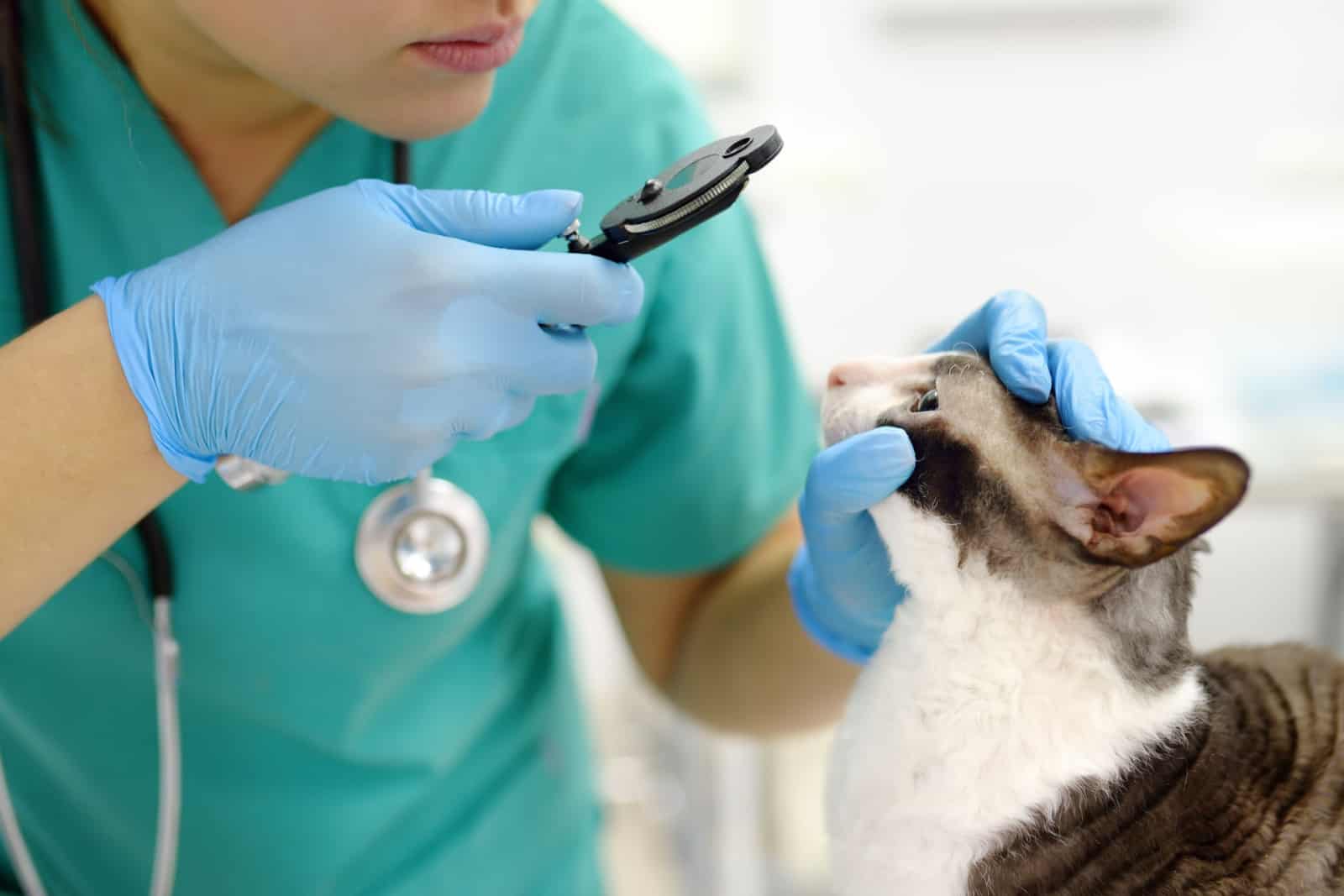
You should not be overly concerned if your cat’s eyes occasionally dilate.
However, if you notice that your cat’s eyes are constantly dilated or any other unusual symptoms, such as redness, swelling, discharge, or discomfort, it’s a good idea to have your cat examined by a veterinarian.
A veterinarian can determine the cause of the dilated pupils and recommend the appropriate treatment. Sometimes, treatment may be necessary to protect your cat’s eyes and vision.
In Conclusion
Now you know the most common causes of pupil dilation in cats.
As you can see, some causes pose a serious health concern to a cat, so if your cat’s eyes are dilated all the time (not just when the cat is excited or scared), please see a vet.
Cat owners, whatever the cause, I’m sure your feline friend will be safe and sound (just make sure that pupil dilation is not due to an underlying health condition)!

